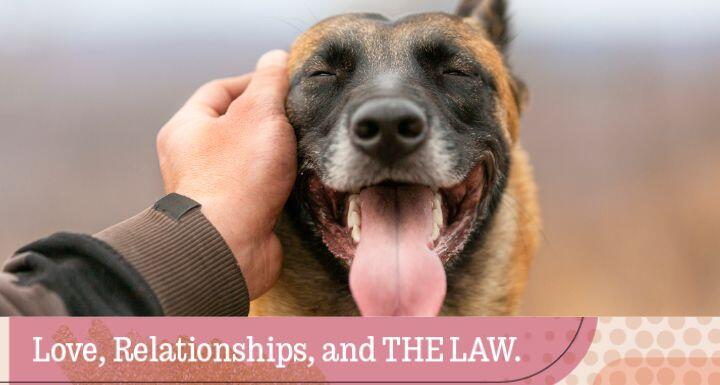
Pets are not just animals, they are cherished members of our families, providing unconditional love and companionship.
That's why, as responsible pet owners, it's our job to make sure our beloved furry friends are taken care of even when we're not able to provide that care ourselves. Pet estate planning is an important aspect that is often overlooked. In this article, we'll explore the importance of planning for your pets' future and the steps you can take to secure their health.
Understanding the Need for Pet Estate Planning:
Your estate plan determines the distribution of your assets upon death, but our pets are more than just property. Without proper planning, pets may end up in shelters or with individuals who may not understand their special needs or are not equipped to meet their specific needs. Planning for the ongoing care of your pets — by considering who will care for them and establishing the appropriate financing for their care — is a critical component of any estate plan.
Pet ownership can be very expensive, and it's always worth it for those of us who love our furry friends. But if we are no longer able to care for our pets, will someone else be willing to bear these costs? Owning just one dog can cost up to $5,000 per year. Assuming your dog may live at least another 5 years after your death, you may not feel comfortable distributing $25,000 directly to a future caregiver in the hopes that the caregiver will use the money wisely. This number increases even more for pet owners who have pets that can live very long lives, such as horses, tortoises and parrots. A pet trust can alleviate these concerns by requesting annual or monthly distributions of a certain amount that will be used solely for your pet's care.
Caring for our pets can also be time consuming, and we are happy to do so with the unconditional love that only our pets can return. But will this be the case for our pet caregivers who succeed us? A simple provision in the pet trust can provide compensation to the pet caregiver to add incentive to properly care for our pets.
Key components of pet estate planning:
1. Identify caregivers
The first (and sometimes hardest) step is identifying the right caregivers for your pets. This includes considering individuals who are willing and able to assume the responsibility of caring for your pets in the event of your incapacity or death. Communicate with potential caregivers and make sure they are comfortable with the responsibilities involved.
2. Legal documentation
Create legal documents to solidify your wishes regarding your pets. A pet trust is a legally recognized document that sets forth funds and instructions for the care of your pets. This ensures that the financial aspect of their care is taken care of and that the appointed carer follows your specific instructions regarding your pets' welfare. A pet trust can be set up under your will or under a trust agreement.
North Carolina General Statutes § 36C-4-408 explicitly sets out the rules surrounding pet trusts, including what happens when our pets go missing. Pet care will end when the animal dies, or the last surviving animal if you have multiple pets to care for. Upon termination, the Trustee is directed to remit the Unused Funds in the following order: (1) as directed by the Credit Agreement; (2) if the trust is created under your will, as directed by the remainder clause of your will; or (3) to your heirs.
3. Be financially prepared
Determine the financial resources needed to care for your pets and include them in your estate planning. Factor in veterinary care, grooming, food, and any other potential expenses. If you are considering a pet trust, you may also want to consider administrative costs, such as the cost of preparing the tax return each year and paying fees to the trustee.
4. Leave detailed instructions
Clearly outline your pets' daily routine, nutritional needs, medical history, and any other specific requirements in your estate planning documents. The more detailed and comprehensive your instructions are, the more likely your pets will continue to receive the care they are accustomed to.
5. Keep things up to date
Life is dynamic, and circumstances may change. Regularly review and update your pet estate planning documents to reflect any changes in your pets' needs, your financial situation, the availability of designated caregivers, or even more pets (because there can never be too many of them!).
Conclusion
Comprehensive estate planning is a critical responsibility of every pet owner. This planning not only brings you peace of mind as a pet owner, but is also a testament to your commitment to these dear companions. If you have pets that you love, contact us today so we can help ensure a healthy and happy future for them.
—
© 2024 Ward and Smith, PA For more information about the issues described above, please contact or .
This article is not intended to provide legal advice, and should not be relied upon in any particular circumstance or factual situation. No action should be taken in reliance on the information in this article without obtaining the advice of an attorney.
We are your established law network with offices in Asheville, Greenville, New Bern, Raleigh, and Wilmington, NC.

